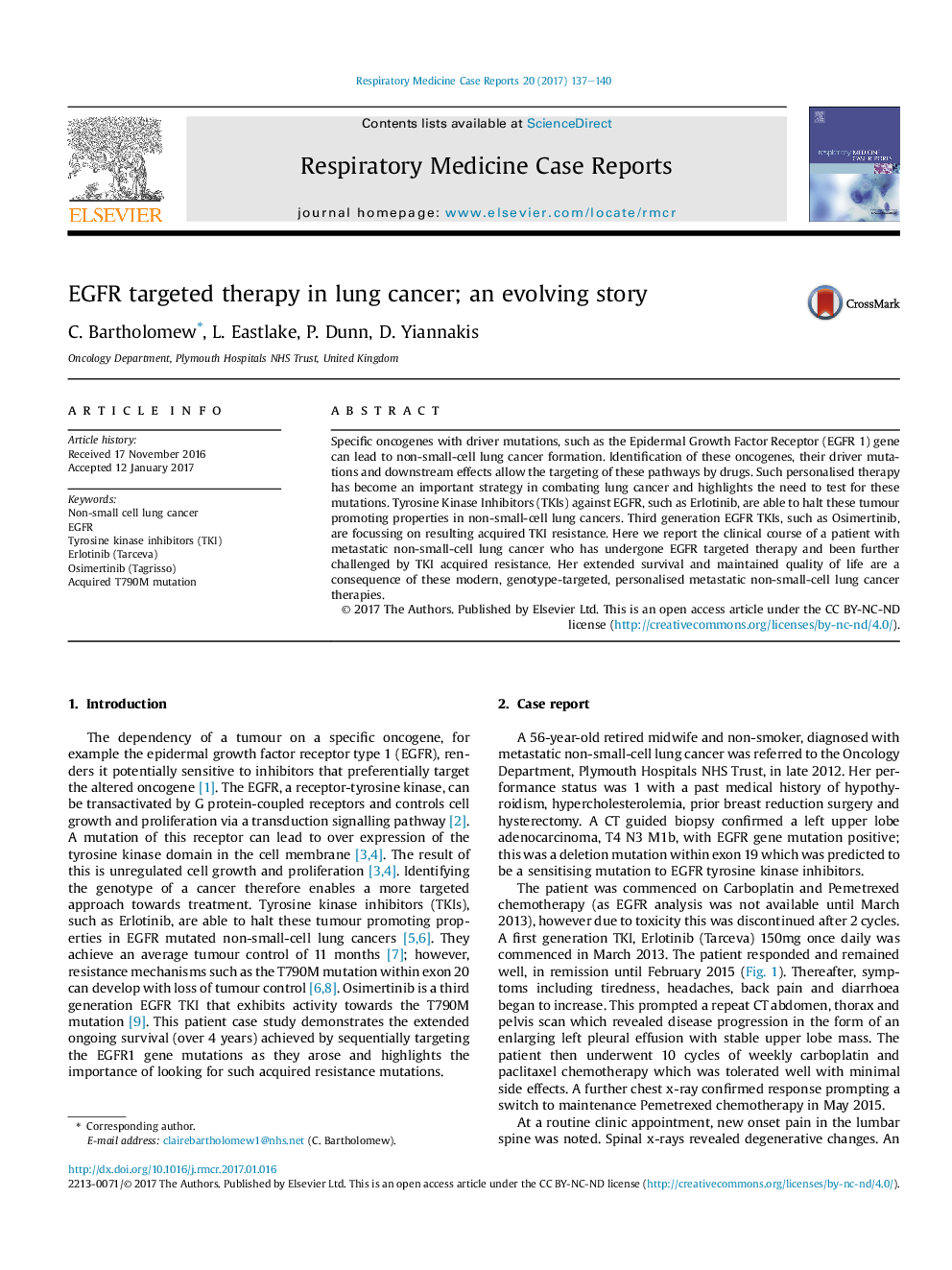| Article ID | Journal | Published Year | Pages | File Type |
|---|---|---|---|---|
| 5725226 | Respiratory Medicine Case Reports | 2017 | 4 Pages |
Specific oncogenes with driver mutations, such as the Epidermal Growth Factor Receptor (EGFR 1) gene can lead to non-small-cell lung cancer formation. Identification of these oncogenes, their driver mutations and downstream effects allow the targeting of these pathways by drugs. Such personalised therapy has become an important strategy in combating lung cancer and highlights the need to test for these mutations. Tyrosine Kinase Inhibitors (TKIs) against EGFR, such as Erlotinib, are able to halt these tumour promoting properties in non-small-cell lung cancers. Third generation EGFR TKIs, such as Osimertinib, are focussing on resulting acquired TKI resistance. Here we report the clinical course of a patient with metastatic non-small-cell lung cancer who has undergone EGFR targeted therapy and been further challenged by TKI acquired resistance. Her extended survival and maintained quality of life are a consequence of these modern, genotype-targeted, personalised metastatic non-small-cell lung cancer therapies.
